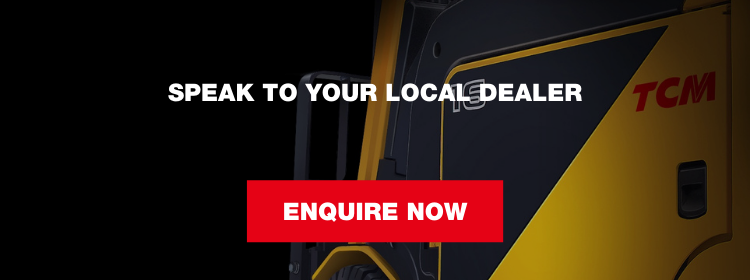Share Article

"The times, they are a-changing" in the warehousing and supply chain industries. If you have been feeling the pressure of the rise of eCommerce, along with the radical changes to working practices brought about by Covid-19, you're not alone. The question is, how have other warehouse and forklift fleet managers handled the situation? Is there advice that would benefit the industry as a whole – and how can you adapt in ways that will future-proof your operations?
Read on to learn how warehouse fleet managers are adapting to global change, plus some key considerations for protecting your business in the future.
Issue: Fleet Management Changing Overnight Due to Covid-19
The pandemic has radically, and rapidly, altered how many material handling businesses and fleets are operating. Much of the industry has had to adjust, whether it was adopting social distancing, reducing the number of operators on-site or changing shift patterns to meet these changes. Then there have been activities like working out how to adapt existing safety measures, identifying high-touch points and bringing in extra cleaning between shifts. There may also be some staff who have had to start working in unfamiliar areas of their warehouse or depot.
Solutions and takeaways:
Keeping operations running smoothly and efficiently has obviously been a top priority, but the changes have pushed safety further into the spotlight.
For some, one major aspect has been using staff from other sites to consolidate their team. A key piece of advice is to ensure that forklift operators have adequate time to familiarise themselves with new environments, even if it is only a different area of the warehouse they usually work in.
This applies outside of the pandemic period, as well as during it. Adequate, up-to-date training is always vital, but being able to take on more varied work also helps avoid the dangers that result from boredom, repetitive tasks, overfamiliarity and overconfidence. What is more, staff who are trained for different roles add value in the long term since they can adapt to perform a wider range of tasks.
Related read: for more on safety, explore 5 Common Forklift Driving Mistakes You Shouldn't Ignore
Another issue is keeping track of operators' skill levels and familiarity. You might have needed to check whether your new influx of drivers were familiar with electric forklift battery charging and maintenance checks, or to explain differences between forklift models. (If you aren't already, it's well worth having a database of driver skills to help you locate the right team quickly, should you need to adjust at short notice.)
A key message is to invest in both basic training and giving operators the chance to become multi-skilled, which could help you keep them in your workforce for longer. It also means your business can be more agile, in an age where agility really matters.
Issue: Skills Shortages Highlighted by the eCommerce Boom
The rise of eCommerce, both before and during Covid-19, has put the warehousing and supply chain sectors under pressure like never before. Customers have come to expect fast delivery times, but rapid delivery also means that more warehouse space is needed. (eCommerce is thought to need three times more logistics space than 'bricks and mortar' shops).
This situation has also highlighted skills shortages in the material handling sector. Warehouses are busier so they need to operate more efficiently, yet processes such as onboarding have to happen more quickly as there's less time to spare. The net result is concern about safety and efficiency. Your team needs the right people, working at full capability and avoiding costly (potentially life-changing) accidents.
Solutions and takeaways:
Training schemes and apprenticeships are well worth considering so that you can bring on new operators and up-skill existing drivers. This means you can train staff the right way, as well as build skill sets that meet your fleet's needs.
You also need to keep experienced, skilled staff on your books. This isn't just about incentives or pay rises. It's important to look at staff longevity and productivity from another angle: thinking about what you can do to avoid driver downtime.
Operator comfort might not be your first thought when it comes to avoiding downtime, but in fact, everyday strains and vibration shocks from operating forklifts can add up. Preventing these helps avoid drivers from taking time off because of them, or trying to work while in discomfort or distracted. Modern forklifts often have features to help maintain operator comfort; they can help you keep skilled drivers in your workforce, rather than having to sub in less experienced operators. Get in touch with your local dealer to find out about the latest driver comfort features available.
Related read: 5 Ways to Optimise Your Operations and Plan Your Future Forklift Fleet
Issue: Time to Update Your Technology
A 2020 report by SOTI, a mobile and IoT (Internet of Things) management solutions provider, found that almost half of British and global transport and logistics companies use legacy technology to monitor the last mile of delivery. What's more, 37% of them identified this as a reason they were unable to adequately upscale operations during the pandemic.
Solutions and takeaways:
It's clear that warehousing and material handling environments should also expect an increasing focus on digital solutions, wireless connectivity and data-lead decision-making. In the forklift industry, this could include performance telematics to measure charging/fuel efficiency, service history and maintenance needs.
Fleet managers should also expect to see more digital integration with other partners in the supply chain. For example, retailers have been using warehouses to store excess stock, alongside that which is being moved ready for delivery. Supply chain managers need to track inventory, plan for trucks to be loaded to capacity, and adapt to problems further down the chain, like delays at ports or airports. Issues like these contribute to warehouse operational snags like slowdowns (or needing to speed up). To keep everyone on track, forklift fleet managers may also have to adopt technologies like AI that aid in monitoring, planning, prediction and 'risk management'.
Read more about how using data could revolutionise your fleet management effectiveness.
It's said that Covid-19 has added cost and complication to every level of the supply chain and that businesses need to become more agile to maintain operations "at a viable cost". It is increasingly difficult, but very important, to understand how to operate cost-effectively. Technology could help make operations more efficient, but also show whether your warehouse is charging enough for new activities it has taken on in the past year or so.
If you'd like to know more about forklift technology, fleet management and future trends, find out more on our blog. Or, if you are looking for advice on the right forklifts for you, feel free to get in touch – just click the button below.

.png?width=50)


